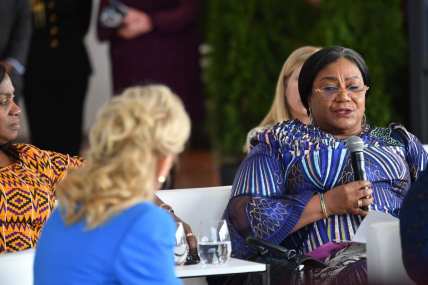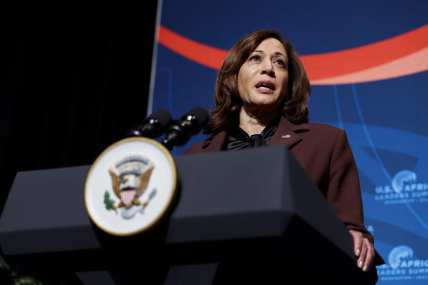First Lady Biden spotlights the diaspora at luncheon for African first ladies
First Lady Dr. Jill Biden welcomed 10 first ladies from the continent at the Smithsonian National Museum of African American History and Culture.
First Lady Dr. Jill Biden on Thursday hosted nearly a dozen first ladies from Africa for the second day of the U.S.-Africa Leaders Summit Spousal Program at the Smithsonian National Museum of African American History and Culture.
Dr. Biden, joined by Second Gentleman Doug Emhoff, welcomed the first ladies of Angola, Botswana, Burundi, Cameroon, Eswatini, Gabon, Liberia, Ghana, Namibia, and Sierra Leone, for a luncheon focused on the African diaspora.
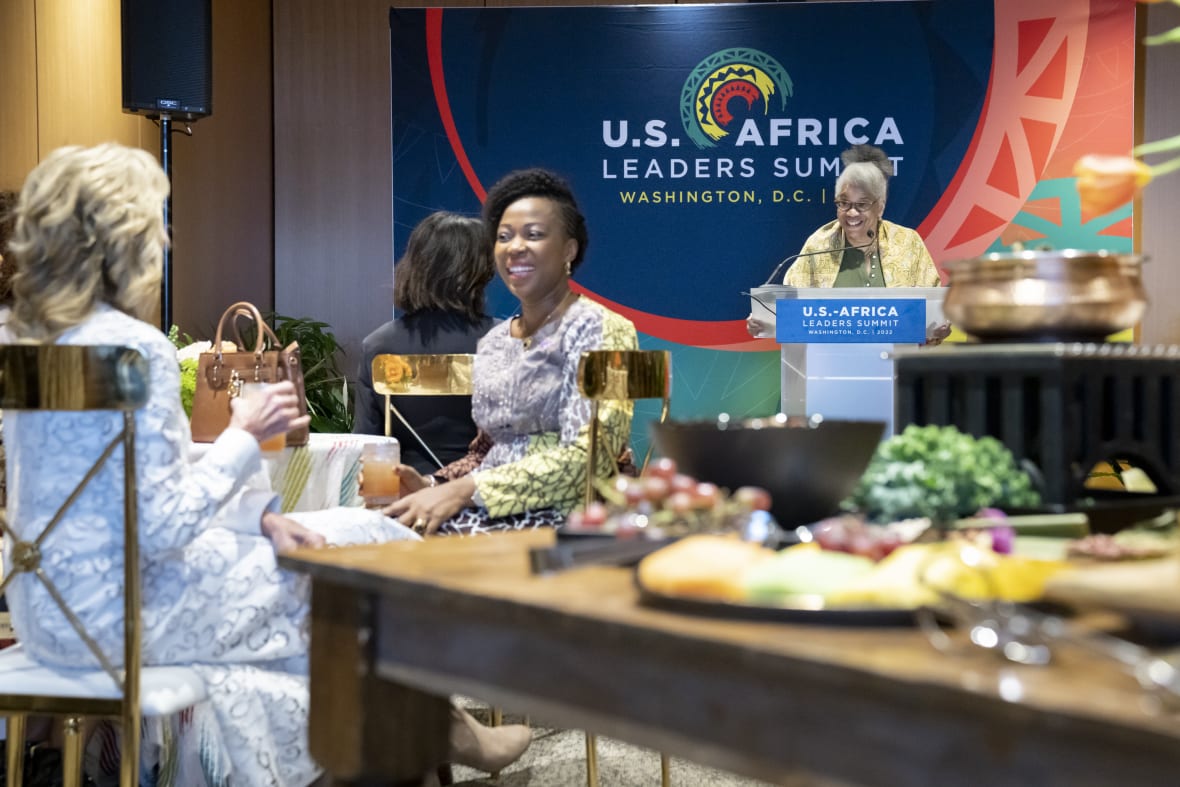
Author and culinary scholar Dr. Jessica B. Harris, who appeared in the Peabody-award-winning Netflix documentary “High on the Hog,” was also invited to give remarks about the rich history of African-American food and its connection to the continent of Africa.
Thursday’s event came a day after the first lady hosted a panel for the White House’s Cancer Moonshot initiative at the Kennedy Center. Dr. Biden invited 21 African first ladies to discuss the challenges their nations face in regard to cancer and other diseases, and the work they are doing to combat them.
In a statement to theGrio, the first lady’s press secretary Vanessa Valdivia said Dr. Biden was “intentional and thoughtful about the design of the spousal program, purposefully creating opportunities for connection and dialogue.”
The statement continued, “From hosting a conversation about barriers to cancer services to featuring Chef Mashama Bailey and Gladys Knight at the dinner, to including historian and author Jessica B. Harris for the spousal luncheon, the First Lady wanted to highlight the role of spouses and our shared priorities, cultures and traditions throughout the summit.”
The first lady delivered brief remarks at Thursday’s luncheon, highlighting the significance of its venue. The National Museum of African American History and Culture, located on the National Mall, is the world’s largest museum dedicated to African-American history and culture.
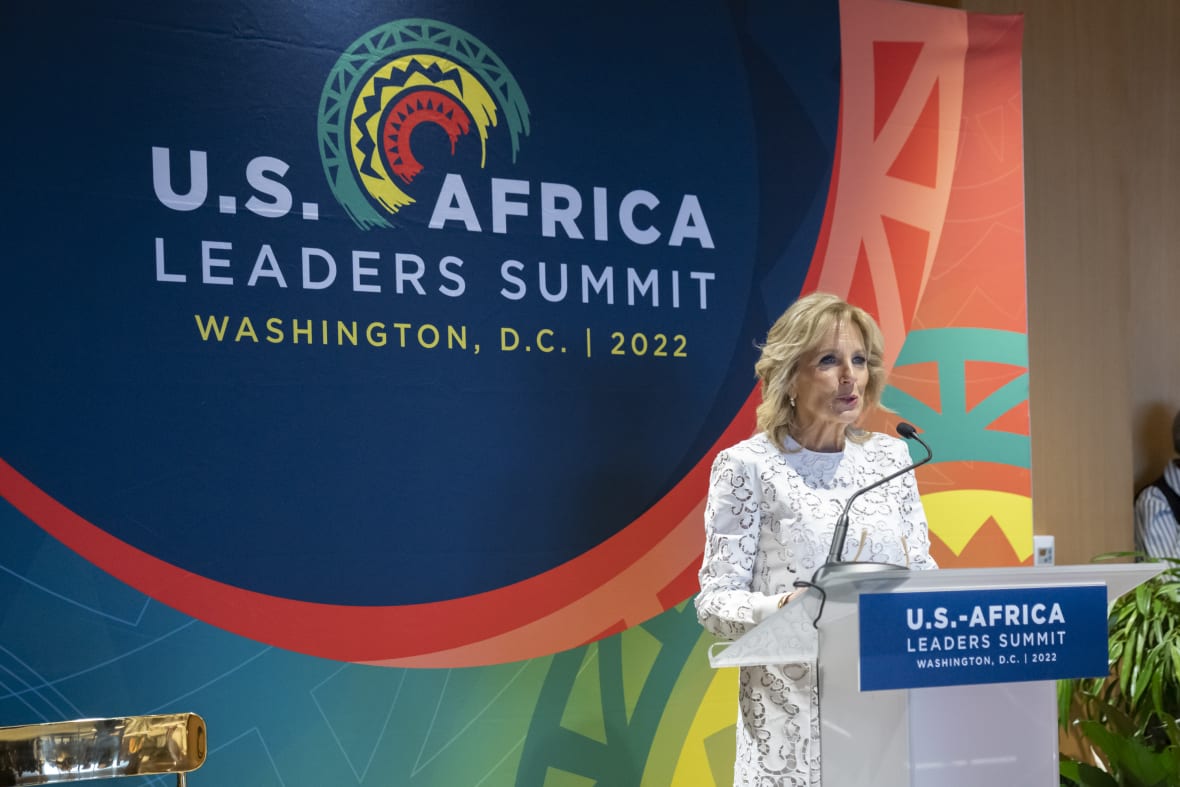
“This special place really preserves the memory of some of our nation’s darkest moments. But it also features some of what is the best to come in the United States,” said Biden. “I brought you here because I wanted to really explore and celebrate the shared cultures and traditions that connect us … and strengthen our relationships today.”
First Lady Biden also underscored the significance of the lunch menu that was intentionally curated to honor the traditions of the African-American cuisine that she said hoped “fills our stomachs but feeds our soul.”
Dr. Harris, who has authored, edited and translated 12 cookbooks documenting the foods and foodways of the African diaspora, also delivered remarks about the rich history of African-American food and its connection to the continent.
“Our food is the way we share ourselves and the way we share love,” said Harris. “We traditionally share it with an open hand and generosity of spirit that is so lavish as to have startled European explorers and travelers in the United States and throughout the continent’s diaspora in this hemisphere. Our food is one of the most powerful of our connectors, and it is the one that brings us here today.”
Addressing the African first ladies, she added, “We, the relatives on this side of the Atlantic, welcome you, and hope that you will taste these connections.”
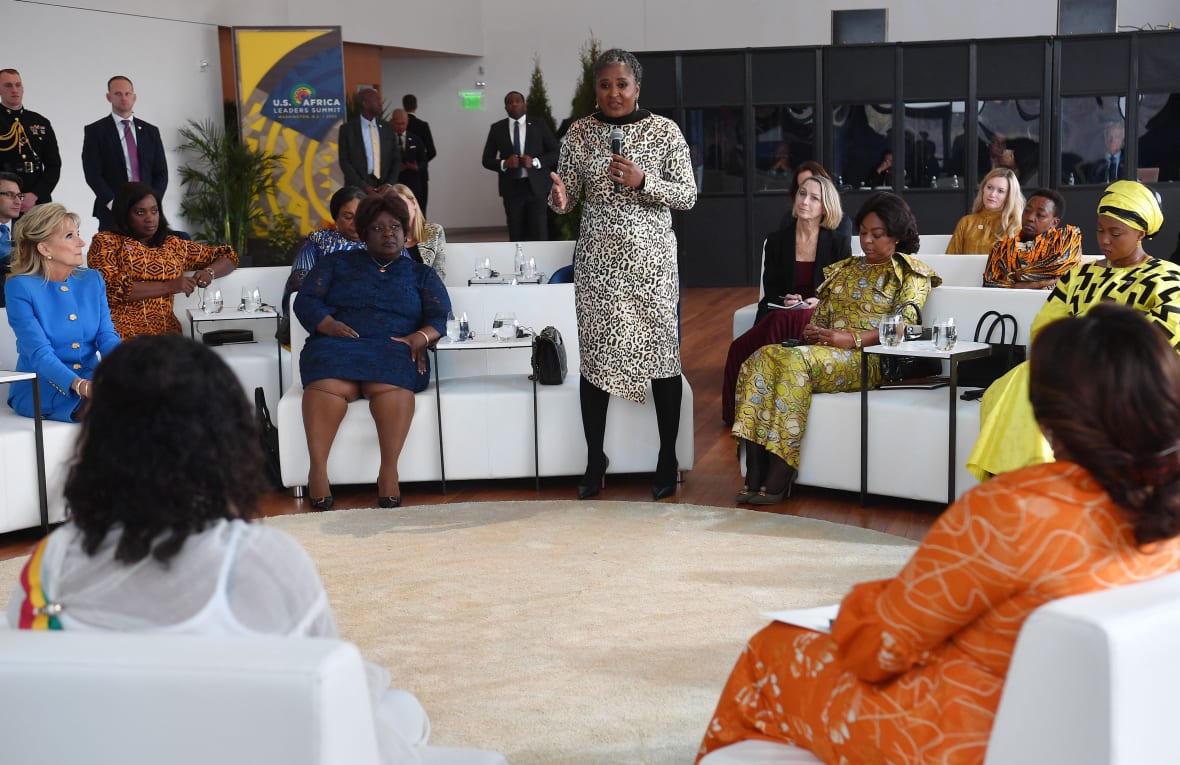
Joseph Tolton, president of the Pan-African advocacy group, Interconnected Justice, commended First Lady Biden for her convening of Africa’s first ladies to discuss important global matters.
“She used her convening power really well. I think she provoked a really important conversation about our ability to relate to the tragedies of human suffering,” Tolton told theGrio.
Tolton, an ordained bishop who has done significant missionary work in Africa, noted that the continent suffers from a lack of health care. The work of the U.S. government, through programs like the first lady’s spousals initiative, he said, hopefully, “provokes a really intentional conversation that the U.S. has to have around how are we really going to partner with Africa so that Africa can produce her own vaccines, and is therefore standing on her own two feet as it relates to her ability to take care of Africans, which is directly related to shoring up Africa’s economy.”
While the unofficial role and work of a first lady can, at times, be undervalued, Tolton praised First Lady Biden’s deliberate work of diplomacy around issues of health and education.
As an example of the “soft power” of first ladies, Tolton highlighted the impact of Winnie Mandela, the former first lady of South Africa and former wife of Nelson Mandela.
“It was Winnie Mandela, who moved the issue [of apartheid] globally. I don’t think she gets enough credit for that,” he shared.
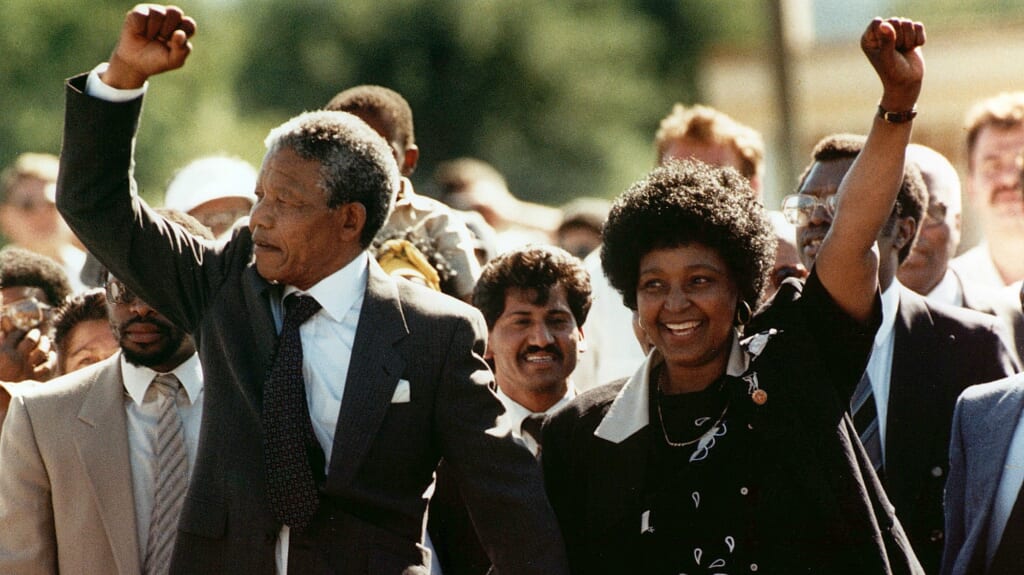
“While Nelson Mandela was in jail building the movement domestically, Winnie was the one who was the microphone to the rest of the world, and I think she created the mold for how first ladies can adeptly engage, without usurping the legal or institutional authority of their husbands.”
He added, “Winnie is a really great example of somebody who kind of created the mold for the ‘activist first lady,’ and you see Jill Biden using that power quite beautifully.”
TheGrio is FREE on your TV via Apple TV, Amazon Fire, Roku and Android TV. Also, please download theGrio mobile apps today!
